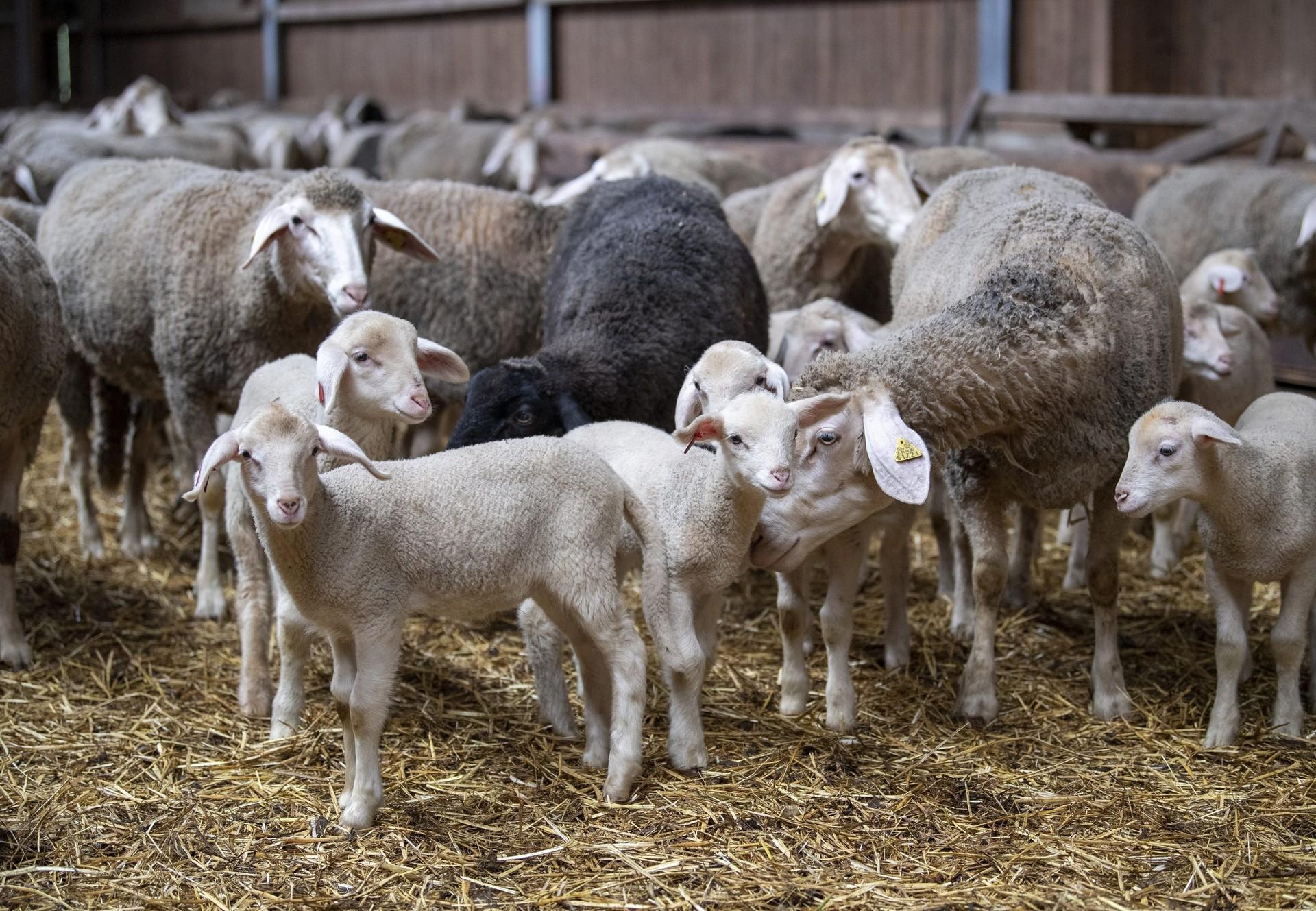
Farm Highlight: The Future Is Non-Mulesed
How an Australian wool producing family successfully ended the painful practice of mulesing
Since 1890, this family business in New-South-Wales, Australia has been focussing primarily on breeding Merino sheep. As 70% of all merino wool for the global clothing industry is produced in Australia, this is not an unusual business in this part of the world. However, something is different at Norm and Pip’s farm: their 8,800 merino sheep do not have to undergo the cruel process of live lamb cutting.
Live Lamb Cutting (Mulesing)
Mulesing is a gruesome practice where parts of the sheep’s skin are cut off without adequate anaesthesia. This procedure is deemed necessary to combat flystrike, as the wrinkles in the sheep’s skin make ideal homes for flies which cause painful infestation. Clearly, the intention behind this procedure is to help the sheep. However, farmers choose mulesing as the quickest and cheapest (short term) solution– and not because it’s the best way to manage flystrike.
Imagine if someone was cutting of parts of your behind with a large knife while being fully conscious. This bloody and traumatizing procedure is what most lambs in Australia continue to endure.
No wrinkles – no pain
But not on Pip and Norman’s farm: they are breeding a certain kind of sheep with no wrinkles which are naturally more resistant to flystrike. These plain-bodied Merino sheep are more comfortable in any Australian environment. They are more resilient, and more fertile.
Recent research has shown that this kind of sheep are also more efficient, easier to take care of, more productive, and in general better adapted to the Australian climate and grazing landscape. Australian woolgrowers now have a choice: If they want to take care of more profitable and more resilient merino sheep which do not require live lamb cutting, they can achieve this in a 3 to 5-year transition using the right genetics with the right advice. To meet changing consumer demand around animal welfare concerns world-wide and to ensure their animals’ wellbeing, change is inevitable.
Note: Any advertisements that may appear during the viewing of this video are unrelated to FOUR PAWS. We assume no liability for this content.
Happy sheep – better wool
First and foremost, Norm and Pip want to achieve a high level of animal welfare for their sheep. At the same time, they also produce a better product, which according to their testimony processes better and makes for a more even yarn that is elastic and soft against the skin. Their sheep also produce less short fibre which means less waste. “Transitioning to SRS Merinos (more flystrike resistant sheep genetics) was a good financial decision for Glenwood, as we have seen a significant return on investment.”, says Norm. “Making the transition was not a particularly costly move as well.” – Valued information to encourage more wool growers to transition away from live lamb cutting.
Over 3,000 producers are live lamb cut-free
With all these benefits, change is slowly happening on the hot continent. Over 3,000 individual wool growers are already certified mulesed-free. The newly released report 'Towards a Non-Mulesed Future', highlights how transitioning away from mulesing is both feasible and economically beneficial.
This new report, commissioned by FOUR PAWS and Humane Society International (HSI), collates data from a survey of 97 Australian wool growers in different states, climate zones and rainfall areas. It clearly shows that with the right breeding choices, the industry will be able to end its reliance on mulesing without compromising the producer’s production or exposing sheep to flystrike. This new breed of sheep is more resistant to all forms of flystrike, completely negating the need for the animals to undergo the mulesing mutilation.
There is this myth in Australia that more wrinkles mean more wool. However, Pip and Norm have seen that their wrinkle-free sheep produce the same amount, of even better quality. The report proves that Pip and Norm are not the only beneficiaries and that many other farmers have made the same experience.
Outdated practices
Changing old habits and traditions is often a slow process that is met with doubt. However, the facts speak for themselves. Hopefully, more and more farmers will realize that they too can strengthen their business while taking better care of their animals.
If this kind of sheep has a better quality of life, produces higher quality wool and is creating a higher financial outcome – why is not every farmer in Australia doing it the way Pip and Norm are doing it? - “A conservative industry today has an opportunity to change its sheep type and produce an animal which is comfortable in its environment and is more profitable. Consumers today are looking for a product which is sustainable, ethical and has a great story”, says Norm.
Norm and Pip sleep better at night knowing that their sheep do not have to endure a traumatizing procedure such as live lamb cutting and that their family is doing better than ever.
The opinions shared in these interviews reflect the views of the authors and do not represent the position of FOUR PAWS.


